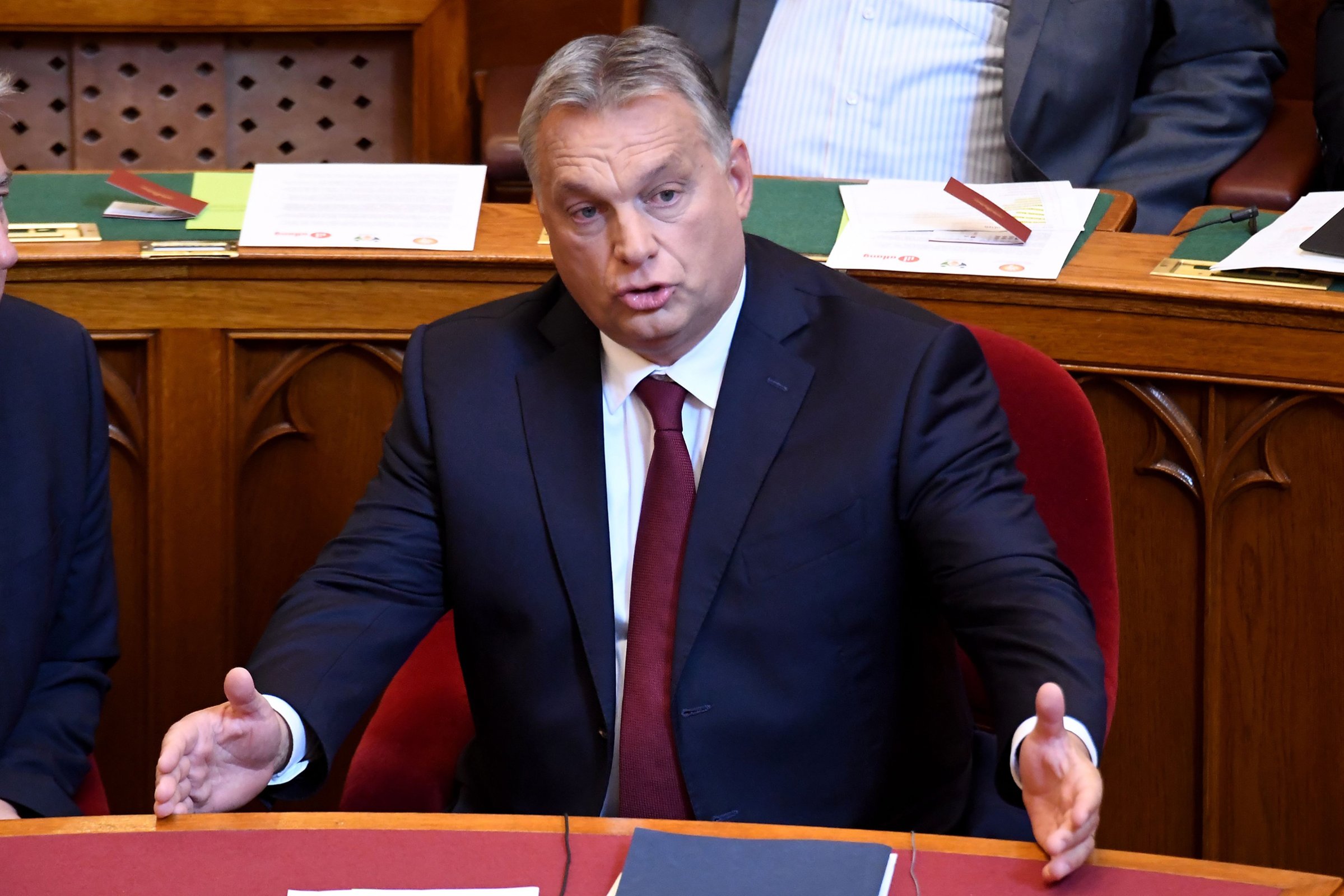
Addressing Hungary’s parliament on Sept. 17, Prime Minister Viktor Orban accused E.U. leaders of seeking to undermine the rights of member states to control their own borders, after the E.U. revealed plans to create a 10,000-strong border force to tackle migration. Days later, his government launched a media campaign against the E.U.’s “pro-migration majority.” His actions added to growing concerns in Europe about Orban’s shift away from democratic norms since the migrant crisis began in 2015.
Breaking Rules
Orban and his nationalist Fidesz party have weakened democratic protections since coming to power in 2010 and now effectively control all branches of government, while silencing critical media. In response, E.U. lawmakers voted on Sept. 12 to censure Hungary for posing a “systemic threat” to democracy, paving the way for sanctions against a member state. Orban has said Hungary is being punished for choosing not to be a “country of migrants” and believes E.U. leaders “don’t want to stop migration, they want to manage it.”
Building Walls
But the decision was about more than just migration. In 2014, Orban set out his vision of “illiberal democracy”–a strong state with high levels of social discipline and limited public dissent. This presents a dilemma to the E.U.’s centrist lawmakers: Orban’s illiberal platform is wildly popular domestically. He triumphed in free elections in April after running on an anti-migrant platform; he closed Hungary’s southern border at the height of the migrant crisis and casts himself as a defender of “Christian values.”
Growing Divide
The E.U.’s leaders are increasingly split between integrationists like President Emmanuel Macron of France and anti-migration populists like Orban and Italy’s Interior Minister Matteo Salvini. Although the border force was intended as an olive branch to the hard-liners, Orban’s response marked his bluntest rejection yet of the E.U. As if to show he has options, he met the day after his speech with another regional power broker: Russian President Vladimir Putin.
More Must-Reads from TIME
- Why Biden Dropped Out
- Ukraine’s Plan to Survive Trump
- The Rise of a New Kind of Parenting Guru
- The Chaos and Commotion of the RNC in Photos
- Why We All Have a Stake in Twisters’ Success
- 8 Eating Habits That Actually Improve Your Sleep
- Welcome to the Noah Lyles Olympics
- Get Our Paris Olympics Newsletter in Your Inbox
Write to Billy Perrigo at billy.perrigo@time.com